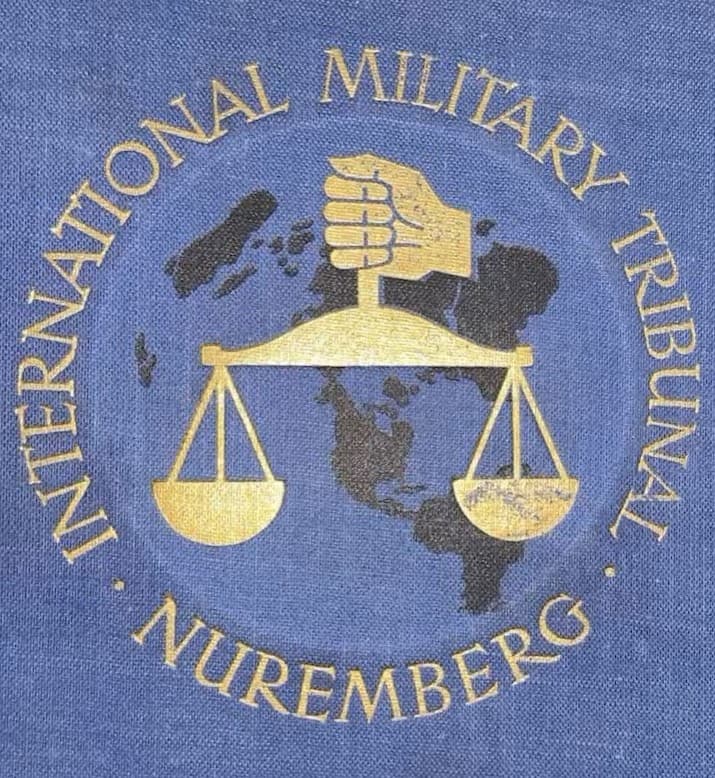The Evening Star (March 28, 1946)
Court overrules Reds attempting to hush Nazi pact testimony
Ribbentrop takes stand after secretary bares secret 1939 treaty
NUERNBERG (AP) – Joachim von Ribbentrop, former German foreign minister, went to the stand in his own defense today shortly after his personal secretary had told the International Military Tribunal of a secret Russian-German pact in August 1939 for the division of Eastern Europe.
The secretary, Miss Margaret Blank, was permitted to testify only after the tribunal had considered the matter in private 75 minutes and over the strenuous objections of the Soviet prosecutor, Gen. R. A. Rudenko.
She said the pact dividing Eastern European territories, including Poland, was brought from Moscow by Von Ribbentrop before the outbreak of the war.
Miss Blank said the pact was in a sealed envelope bearing the inscription, “German-Russian secret agreement,” and that she had seen the original copy. She said she was charged with keeping its existence secret.
Peace moves begun in 1943
The witness also told the court Von Ribbentrop began peace overtures as early as the winter of 1943, when, with Adolf Hitler’s permission, he sent a Prof. Berger to Switzerland for the purpose of finding a basis for peace negotiations through Bern, Stockholm, Madrid, Lisbon and the Vatican.
On April 20, 1945, Von Ribbentrop also notified Hitler that he wanted to undertake peace negotiations, she said, but Hitler would “sanction negotiations only if military successes were present.”
The defense then summoned Paul Otto Schmidt, Hitler’s official interpreter, to testify.
Schmidt said Hitler and all top Nazis were “surprised and greatly depressed” at Britain’s declaration in support of Poland at the start of the war.
Von Ribbentrop and the entire foreign office were “completely surprised,” he added, at the Japanese attack on Pearl Harbor.
Pact testimony held irrelevant
The woman witness barely had time to assert that a Russian-German treaty had been signed by Von Ribbentrop and Foreign Minister V. M. Molotov in Moscow when the Soviet prosecutor got to his feet and objected.
He declared the matter was irrelevant and that the witness was not competent to testify concerning the alleged treaty, thus posing one of the most delicate questions to be presented to the tribunal since the war crimes trial opened more than four months ago.
The tribunal immediately recessed to discuss the matter in private, and the ruling to permit the testimony followed.
Gen. Rudenko charged that attempts of attorneys for both Von Ribbentrop and Rudolf Hess to bring the reported secret pact into the trial were “purely provocative.”
Two copies of treaty made
Alfred Seidl, counsel for Hess, jumped up with the declaration that only two copies of the treaty were made and that Von Ribbentrop took one to Berlin.
He said the Russians had seized most of the German Foreign Office archives in Berlin and added: “I ask that the Soviet delegation be ordered to submit to the tribunal the original of that agreement.”
The treaty first was mentioned at the trial in an affidavit by Dr. Friedrich Gaus, former German ambassador to Moscow. An attempt to introduce this affidavit by Hess’ defense was blocked by Gen. Rudenko pending its translation from German into Russian, French and English.
Outside the courtroom, Seidl expressed bewilderment that such translations had not been completed. He said he submitted the seven-page document to the tribunal’s translation staff three days ago.











